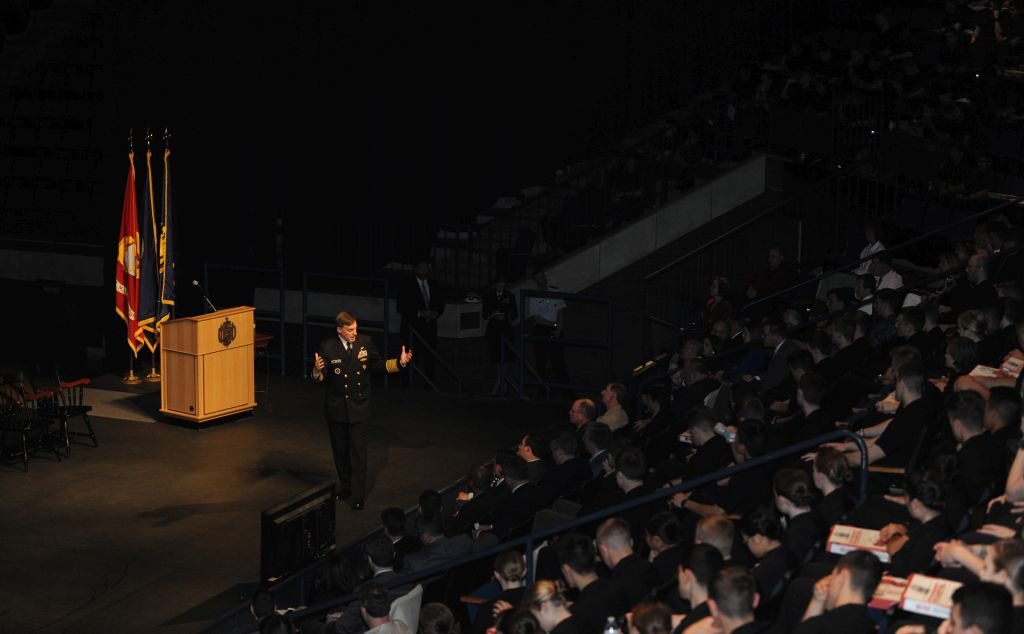The first 27 of the U.S. Naval Academy’s cyber operations majors graduate May 27 as part of the Class of 2016.
The academy first announced its intention to offer a cyber operations major in spring 2013, and midshipmen of the Class of 2016 were the first to be able to select it.
“It’s really a humbling experience to be one of those plankowners,” said Midshipman 1st Class Zac Dannelly. “It’s so unique because it’s not only the first time USNA has offered it, but really it’s the first program of this kind in the nation. It’s not just for our education and those coming behind us at USNA, but we’re kind of paving the way for how this can be taught uniquely around the nation.”
The major provides a basic foundation in computer architecture, programming, data structures, networks, the Internet, database systems, information assurance, cryptography, and forensics. The technical aspects of the program are balanced with courses and electives in areas such as policy, law, ethics, and social engineering.
The cyber operations majors will leave USNA with a deeper understanding of the technical and broader cyber applications in the military and national services. These midshipmen are headed to a variety of Navy warfare communities and the Marine Corps.
“Cyber is all about people, technology and processes,” said Capt. David Bondura, deputy director of USNA’s Center for Cyber Security Studies. “Whether these students are going into the cryptologic warfare, air warfare, submarine warfare, surface warfare or special warfare communities, USNA is building a cadre of junior officers who are leaving here with an understanding of cyber operations — with capability, competence and confidence. This is the one warfighting domain that genuinely affects everyone across the entire warfighting spectrum.”
USNA’s location affords the capability to map the education directly towards what our nation and Navy needs, said Bondura.
With resources such as the Pentagon, the National Security Agency, U.S. Cyber Command and the Office of the Chief of Naval Operations in close proximity, it gives midshipmen the unique opportunity to provide operational relevance towards their education and research.
“I was fortunate enough to be able to do an in-semester internship program with the National Security Agency,” said Dannelly. “I’m able to learn the ‘how-to’ here at USNA and then see the ‘why’ — the real-world applications and practices. Our location makes a drive to the NSA, State Department or the Pentagon very convenient, and the opposite is true for many of our guests who take their time to come speak with us.”
After completing USNA’s cyber operations program, future officers can enter advanced study or potentially choose assignments with various military cyber-related forces in support of national security.
“These cyber operations majors have the technical understanding of what’s happening behind the screen, and additionally they understand the broader implications of what a cyber act’s effects can be,” Paul Tortora, director of USNA’s Center for Cyber Security Studies. “I think that USNA is on the leading edge of this at the undergraduate level.”
Almost doubling the graduating cyber majors, 51 plebes, or freshmen, declared cyber operations as their major earlier this year, said Tortora.










